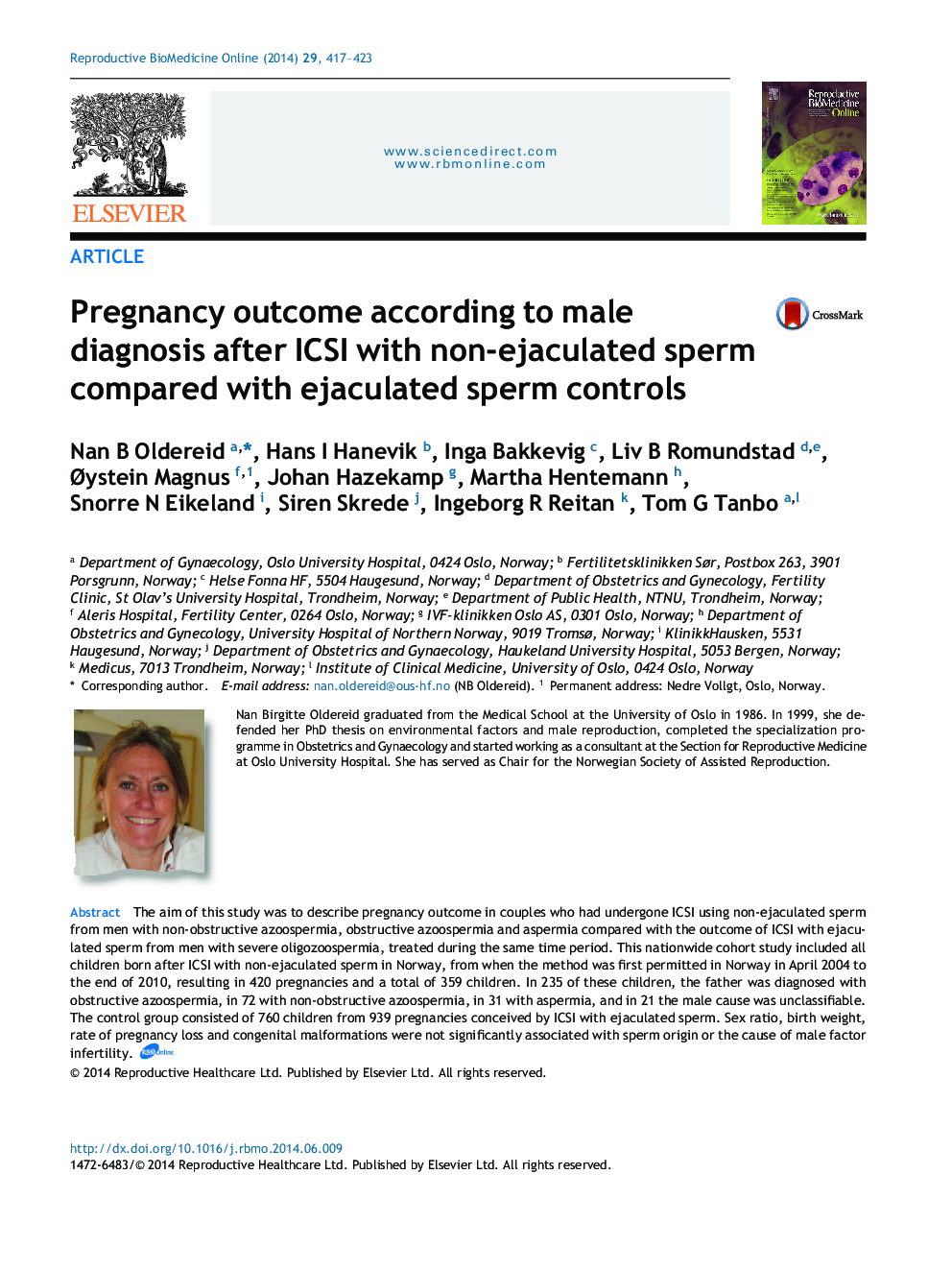| Article ID | Journal | Published Year | Pages | File Type |
|---|---|---|---|---|
| 6189096 | Reproductive BioMedicine Online | 2014 | 7 Pages |
Abstract
The aim of this study was to describe pregnancy outcome in couples who had undergone ICSI using non-ejaculated sperm from men with non-obstructive azoospermia, obstructive azoospermia and aspermia compared with the outcome of ICSI with ejaculated sperm from men with severe oligozoospermia, treated during the same time period. This nationwide cohort study included all children born after ICSI with non-ejaculated sperm in Norway, from when the method was first permitted in Norway in April 2004 to the end of 2010, resulting in 420 pregnancies and a total of 359 children. In 235 of these children, the father was diagnosed with obstructive azoospermia, in 72 with non-obstructive azoospermia, in 31 with aspermia, and in 21 the male cause was unclassifiable. The control group consisted of 760 children from 939 pregnancies conceived by ICSI with ejaculated sperm. Sex ratio, birth weight, rate of pregnancy loss and congenital malformations were not significantly associated with sperm origin or the cause of male factor infertility.
Related Topics
Health Sciences
Medicine and Dentistry
Obstetrics, Gynecology and Women's Health
Authors
Nan B. Oldereid, Hans I. Hanevik, Inga Bakkevig, Liv B. Romundstad, Ãystein Magnus, Johan Hazekamp, Martha Hentemann, Snorre N. Eikeland, Siren Skrede, Ingeborg R. Reitan, Tom G. Tanbo,
